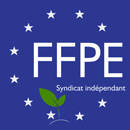The Federation wishes to celebrate 9 May 2017, Europe Day.
It supports the values underlying European integration.
As a result, the Federation expects the Commission to launch a step forward based on an explicit clarification of the European project that can garner popular support.
In this year marking 60th anniversary of the Treaties of Rome, participation in the Europe Day celebrations and recalling the spirit and vision underlying Robert Schuman's Declaration of 9 May 1950 make even more sense.
The many internal and international challenges facing the European Union today require urgent adjustments.
The results of the recent elections in Austria first, then in the Netherlands and now in France are far from pleasing. Of course the worst was avoided, but let's not delude ourselves, populist and anti-European forces remain very strong.
These results demonstrate the urgency of calling into question and making adjustments to the functioning of the Union to put European construction back on a Europe on a positive path.
In order to regain the adhesion of the European peoples, which is essential for the continued construction of Europe, we must once again listen to them, explain the EU's aims to them and accompany each stage with concrete measures of benefit to the population as a whole, not just to a fortunate few.
It is therefore necessary to break with the current dynamics. Rightly or wrongly, EU bodies' actions and policies appear to be, if not dominated, at least inspired by lobbies and disconnected from the needs of the European peoples by the combination of at least two factors:
- on the one hand, certain policies are influenced by the interests of those groups, which is not in itself abnormal since the Union must preserve the freedom of trade and industry, ensuring that this is done within the framework of transparency and fair redistribution;
- on the other hand, the policies that are of direct benefit to citizens are perceived as insufficient and, even if they are effective, they are insufficiently or even poorly communicated to interested parties...
A proper balance is needed between these areas of action. This balance must not only be assured but also be explained and, above all, publicized. Insufficient, incomplete or biased transparency fuels misinformation and exposes the institutions' officials and agents of to criticism.
Too often the Commission gives the impression that it is afraid to assert that the European project, despite some understandable weaknesses, is a success and that the work it carries out is essential for implementing EU policies and for ensuring respect for fundamental values and rights.
In order to achieve a change in mentality, it is also necessary that Member States stop treating the Commission through the media as a scapegoat for all failures, while taking all the credit for European successes.
The reflection process initiated by the White Paper on the future of the Union offers an opportunity in this regard which it is important to grasp as soon as possible.
The Federation therefore considers it urgent that the College pro-actively revisit the aims of EU policies in order to amplify actions of direct and visible interest to the citizens and endow the Commission with a more robust, more comprehensive, and, in a word, more effective communication policy.
The Federation has always striven to ensure that there is a close parallelism between the European project and a high-quality, motivated and efficient European civil service of proud to serve that noble cause.
European civil servants must be proud to work for the European institutions, because pride goes hand in hand with efficiency and motivation.
The Federation also takes this opportunity to recall that the defense of the European project and of the European Public Service are inseparable.

